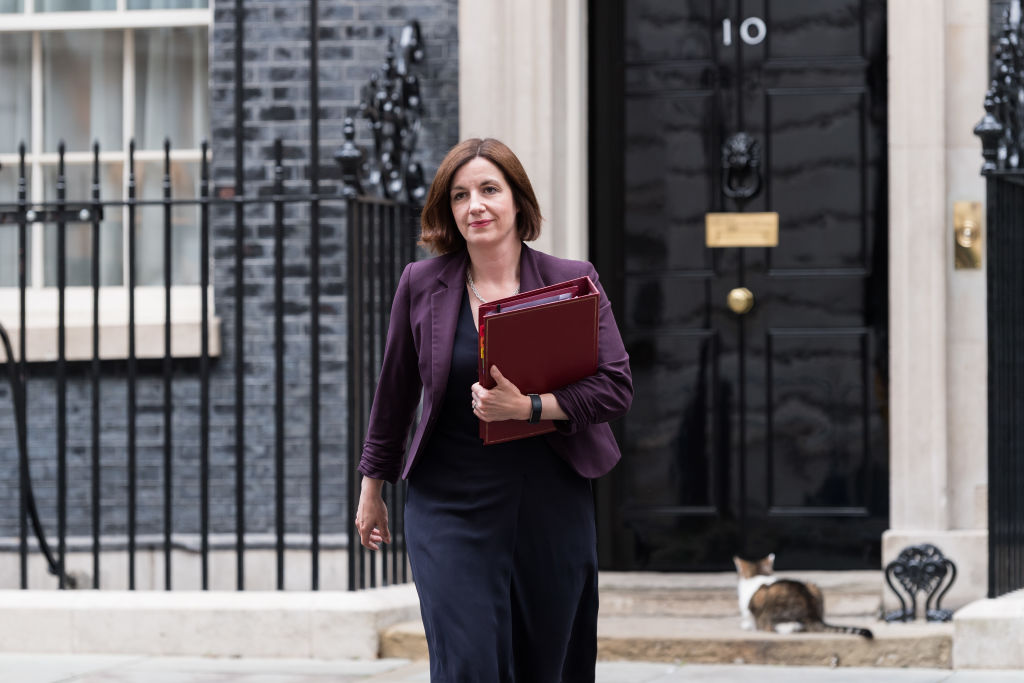Bridget Phillipson hasn’t even been Education Secretary for a month yet, but she’s already teaching a lesson the Conservatives would do well to heed: how to wield power.
First, she disposed of Lord Wharton, the Conservative peer who had been serving as Chairman of the Office for Students (OfS). The Government has appointed Sir David Behan, a mandarin who headed Health Education England, as an interim replacement. Second, as of yesterday she has halted commencement of the Higher Education (Freedom of Speech) Act 2023, the previous government’s flagship legislation aimed at protecting freedom of speech on campuses.
We should be sceptical of Phillipson’s purported concerns that the Act would be “burdensome on providers and on the OfS”. Labour is not generally known for its deregulatory zeal, although it will probably make an exception for universities if it means avoiding difficult decisions about closures.
But stepping back from the rights and wrongs of the specific policy, the Government’s about-turn on higher education regulation is a perfect case study in what the unabashed willingness to wield ministerial power looks like — and provides a stark contrast with the past 14 years of Conservative rule.
Given how much state authority is today invested in quangos and other arms-length bodies, there is a strong democratic case for the government of the day to play an active role in choosing their leadership and direction. Yet, as on so many things, the Tories only ever managed to muster fitful and fleeting interest in installing their own people in key positions.
It is true that officialdom tends to be much more critical of the Conservatives than Labour for trying this sort of thing. In 2016, the Commissioner for Public Appointments savaged the Government for resorting to “patronage”; in 2022, the Institute for Government called for reforms that would restrict ministers’ ability to “interfere” with the appointment of quango chiefs.
The contrast with the echoing silence around Wharton’s dismissal is telling — but ought to have made the Conservatives more determined to get to grips with the machinery of the quasi-autonomous state, not less.
Then there’s the HEFSA. Now, refusing commencement is not the same thing as outright repeal. Phillipson is simply taking advantage of the fact that the Act has not come into effect yet; there was for some reason a regulation specifying that it would do so in August, and she has simply repealed that. But it still illustrates the fact that there is no reason for an incoming government to put up with inherited legislation which it doesn’t like.
New Zealand’s new Right-wing coalition government is a fine example of what this looks like in practice. The first thing it did upon taking office was announce plans to repeal large parts of Jacinda Ardern’s legislative legacy, including the infamous smoking ban.
By contrast, the only thing the Conservatives managed to scrap over their 14 years in office was the Fixed-term Parliaments Act 2011. This was a very good move, but pales in comparison to what they left in place – especially the Equality Act 2010, which has had and continues to have a vast impact on both the public and private sectors.
Time and again, Tory ministers and backbenchers alike have expressed outrage at this or that manifestation of the Equality Act, which Labour rushed through in 2010 explicitly to skew the field in favour of its policies. But not only did successive governments baulk at full repeal, it took until June 2024 for them to even get round to serious talk about amending it.
The result? Well over a decade in which the country barely moved in a Conservative direction on any metric, and an official state completely ready to return to normal service now that Labour is in power.











Join the discussion
Join like minded readers that support our journalism by becoming a paid subscriber
To join the discussion in the comments, become a paid subscriber.
Join like minded readers that support our journalism, read unlimited articles and enjoy other subscriber-only benefits.
Subscribe